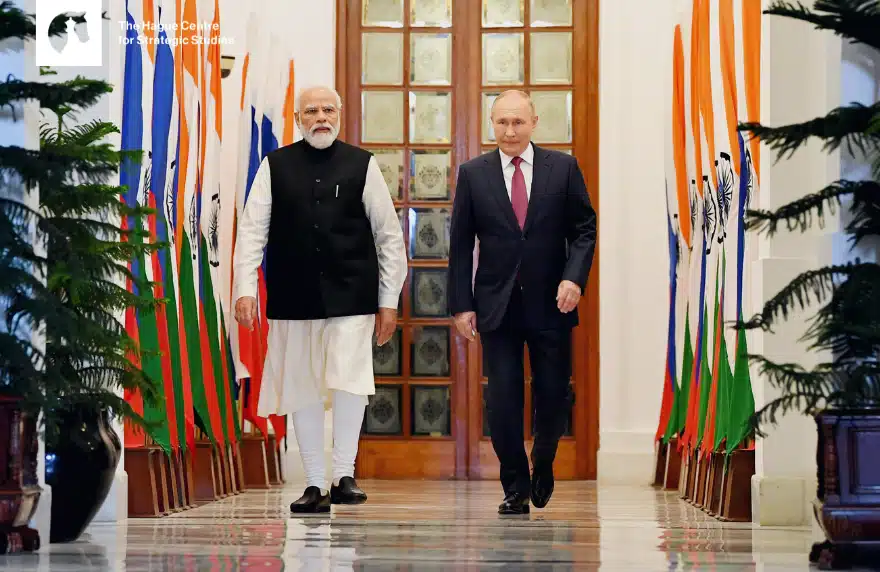Aan het eind van het jaar voert de Europese Unie een boycot op Russische olie in, mogelijk de zwaarste sanctie die de lidstaten tot dusver durfden op te leggen. Maar zo’n importverbod is alleen effectief als de rest van de wereld ook meedoet, zegt energie-expert Lucia van Geuns van het Den Haag Centrum voor Strategische Studies (HCSS) in De Volkskrant. ‘Anders zal olie altijd zijn weg vinden naar andere klanten.’
De Aziatische landen waren vooral geïnteresseerd in meer olie, maar ook aan gas en kolen verdienden de Russen flink. In totaal rekende China in maart, april en mei twee keer zoveel af als in dezelfde periode in 2021: omgerekend 18,6 miljard euro. India kocht in die maanden zelfs het vijfvoudige bedrag in: 5 miljard euro.
Via India toch naar Europa
China en India trekken dus hun eigen plan, ook omdat Rusland hun fikse kortingen biedt. Vooral de rol van India is saillant. Het land is historisch gezien geen belangrijke oliehandelspartner van Rusland, maar in de laatste maanden haalde het de economische banden met Rusland in rap tempo aan. Voor een deel komt dat omdat India zelf niet genoeg ruwe olie heeft voor zijn 1,4 miljard inwoners. Tegelijkertijd verwerken Indiase raffinaderijen ook zelf olie tot diesel, dat ze vervolgens exporteren. Energie-experts nemen aan dat Russische olie zo alsnog in Europa belandt, via een omweg, zelfs als Europese bedrijven niet direct met Rusland willen handelen.
De Indiase regering greep afgelopen week in om deze handel te stoppen, zegt Van Geuns. ‘De commerciële raffinaderijen moeten nu een winstbelasting betalen op alles wat ze extra verdienen aan de export van diesel. Dat maakt het minder lucratief om diesel met hoge prijzen te verkopen aan Europa.’
Olieprijzen dalen weer
Ondanks de naarstige afname van China en India zijn de Westerse sancties aan Rusland niet helemaal nutteloos. Volgens Van Geuns verloopt de handel met de Aziatische landen nog altijd minder gestroomlijnd dan de export naar Europa. ‘Het Internationaal Energieagentschap voorspelt dat bij een boycot mogelijk drie miljoen vaten niet hun bestemming zullen vinden. Rusland wordt dus getroffen. Maar als de olieprijs hoog blijft, zal er nog best veel in de oorlogskas binnenkomen.’
Lees het hele artikel in De Volkskrant, 8 juli 2022
Foto bron: Kremlin.ru




